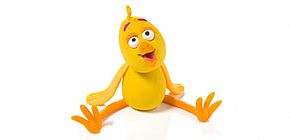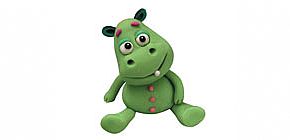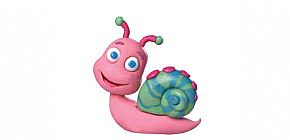Fever reducing medication, a humidifier to relieve stuffy noses and creams to treat the skin - everything you should have in your infant’s toiletry closet.
Infant Coughs and What they Indicate
 |
|
What type of cough does your infant have? Dry? Wet? Barking? Different medical states are characterized by different types of coughs. All you need to do is listen. Here, you’ll learn about all the types of coughs that accompany childhood illnesses - and how you can treat them.
The infant cough is a reflex that helps the little one’s body clear airway blockages. In most cases, there’s no cause for concern, and the cough may even pass on its own, without treatment. However, certain types of coughs can indicate medical conditions that do require treatment. In order to be able to decipher your infant’s cough and decide how to act, you can listen to it and pay attention to any accompanying symptoms.
Types of coughs in infants and the illnesses they indicate
- Colds and the flu: Generally characterized by a dry cough accompanied by a runny nose, sore throat and nighttime fever. Rest and hydration are the appropriate course of action. If your infant is younger than 4 months old, if their fever crosses the 38.5 degree threshold, or if they show signs of distress or difficulty breathing, take them to a doctor at once.
- Strep throat (throat infection): Often characterized by a barking cough that somewhat resembles that of a seal. The throat infection causes the airway to become swollen and blocked. To relieve this cough, raise the humidity level in the room using a cool air humidifier, or by turning on a fan or air conditioner on cold. If your infant displays signs of distress, take them to a doctor at once. If symptoms remain the same, yet persist for longer than a night, make a doctor’s appointment.
- Pneumonia (chest infection): Characterized by a wet, phlegmy (green-yellow) cough. Pneumonia can be caused by a virus or bacteria and can develop from the common cold. An infant who suffers from pneumonia will be very tired and have a high fever. Take your child to a doctor, who will determine the appropriate course of treatment, depending on what caused the infection in the first place.
- Bronchitis or asthma: Characterized by a cough, accompanied by wheezing and heavy breathing. Their similar characteristics can sometimes make it difficult to distinguish between the two. Bronchitis can be accompanied by a low fever and loss of appetite, while asthma can be accompanied by symptoms of the common cold and teary, irritated eyes. It’s recommended to head to the doctor at the first sign of wheezing, in order to obtain the proper diagnosis and treatment.
- Pertussis (Whooping cough): Characterized by loud and rapid coughing fits, followed by a whistling sound upon inhaling. Other characteristics include protruding eyes, a change in facial skin color and a stuck-out tongue. Whooping cough is dangerous, especially for infants under the age of one, who have yet to be vaccinated against this illness. The whooping cough vaccine is an essential method of preventing the highly contagious illness from being contracted, especially since it can be life-threatening. If you suspect that your infant has whooping cough, seek immediate medical care.
It is important to monitor the cough’s development and your child’s general state, and head to the doctor should it worsen. If your infant demonstrates shortness of breath, if their cough does not go away within a few days, if their fever rises, if they are apathetic, lethargic, and have no appetite, they should be seen by a doctor at once. Infants aged 0-3 months are even more vulnerable to viruses and bacteria and should be taken to the doctor immediately at the onset of a cough.
Coughs are annoying and tiring in infants, stealing away sleep from little ones and their parents alike. For this reason, it is recommended to treat the cough in particular, in addition to any treatment received for the medical condition at its root.
Ways to treat a cough
- Cough syrup: Phlegm is a breeding ground for bacteria, makes it really hard to breathe and causes one to cough. Cough syrup reduces the thickness of phlegm, helps evacuate it from the airway and help the infant breathe easier.
- Humidity: Adding humidity to the air by drawing a warm bath can help open up the airways and relieve the cough.
- Nutrition: It is recommended to avoid large quantities of food considered to be heavy on the stomach, in order to make it easier to swallow and digest meals.
Category Title : Infant Colds
How should you warm your home and your infant’s bedroom? Do you need to bathe your child every day? What are the baby gear must-haves for your home? ...
Many parents of infants and toddlers complain about their children experiencing never-ending colds. On the one hand, their children are in good ...
What type of cough does your infant have? Dry? Wet? Barking? Different medical states are characterized by different types of coughs. All you need to ...


.jpg)
.jpg)
.jpg)
.jpg)



.jpg)
.jpg)
.jpg)
.jpg)

.jpg)





Contact us